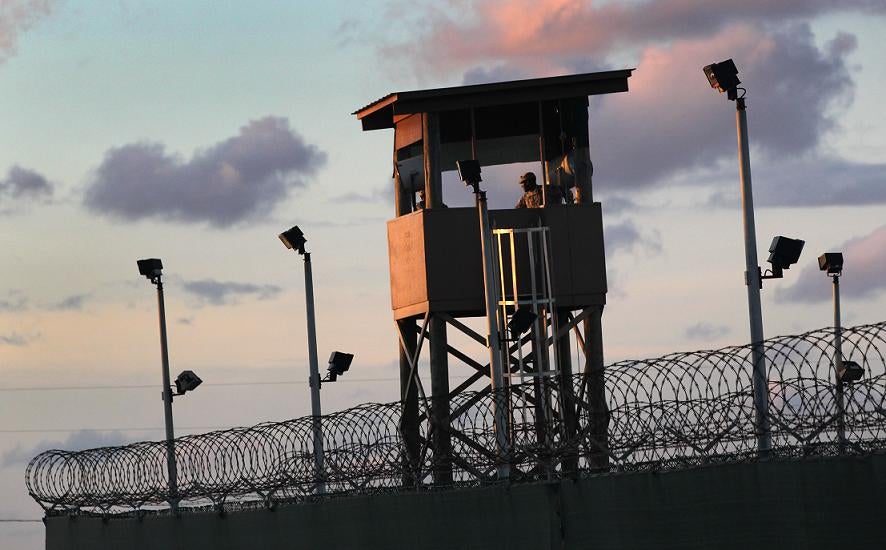Khalid Sheikh Mohammed accuses US of justifying murder, torture in name of security

Your support helps us to tell the story
From reproductive rights to climate change to Big Tech, The Independent is on the ground when the story is developing. Whether it's investigating the financials of Elon Musk's pro-Trump PAC or producing our latest documentary, 'The A Word', which shines a light on the American women fighting for reproductive rights, we know how important it is to parse out the facts from the messaging.
At such a critical moment in US history, we need reporters on the ground. Your donation allows us to keep sending journalists to speak to both sides of the story.
The Independent is trusted by Americans across the entire political spectrum. And unlike many other quality news outlets, we choose not to lock Americans out of our reporting and analysis with paywalls. We believe quality journalism should be available to everyone, paid for by those who can afford it.
Your support makes all the difference.Wearing a camouflage hunting vest, the alleged mastermind of the Sept. 11, 2001, attacks issued a blistering critique of US defense policy during a court hearing in Guantanamo Bay, Cuba, on Wednesday, saying Washington has wantonly used national security as a pretext to murder and torture.
"The president can take someone and throw him in the sea under the name of national security," Khalid Sheikh Mohammed said in an apparent reference to the slaying of former al-Qaeda chief Osama bin Laden, speaking at a pre-trial motions hearing. "He can legislate the killings under the name of national security for American citizens."
The remarks, which alluded to the drone strike killings of Anwar al-Awlaki and Samir Khan, U.S. citizens who were members of al-Qaeda's branch in Yemen, indicated that Mohammed is being kept abreast of current events. The tone of his intervention suggested Mohammed intends to use this trial as a forum to convey that his time in captivity has hardened his vitriol against the United States.
"The government is using the name of national security as it chooses," Mohammed argued at the end of the third day of motions. He warned: "Don't get affected by crocodile tears, because your blood is not made of gold and ours is made of water. We are all human beings."
The terrorism suspect's remarks followed a lengthy debate before Judge James L. Pohl, an Army colonel, over a prosecution request that the public be prevented from hearing information that might be discussed during the trial concerning the CIA's rendition and harsh interrogation of the defendants.
"The government label of classified information does not turn third-party knowledge, experience and memories into something the government can suppress," argued Hina Shamsi of the American Civil Liberties Union, which filed a motion seeking unfettered public access to the proceedings.
David Schulz, an attorney representing the organizations, argued that keeping significant portions of the trial classified would undermine the legitimacy of the controversial war court.
"No one will believe justice was done if things are conducted in secret," he said.
Joanna Baltes, a Justice Department prosecutor, said the protective order the government is seeking is similar to others that have been granted in the past in federal court to prevent disclosure of classified information. She noted that the judge would have ultimate say over whether sessions ought to be closed to the public.
Reporters and relatives of victims of the Sept. 11 attacks may watch the proceedings remotely on a video feed that is delayed to give censors time to halt it. Pohl is expected to rule on the ACLU motion on Thursday.
Join our commenting forum
Join thought-provoking conversations, follow other Independent readers and see their replies
Comments